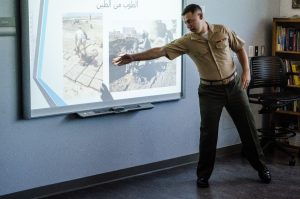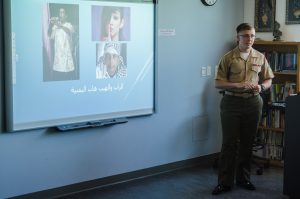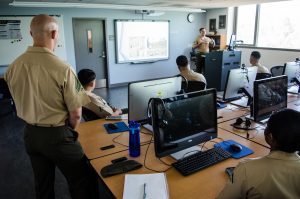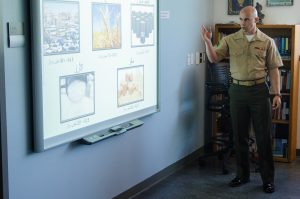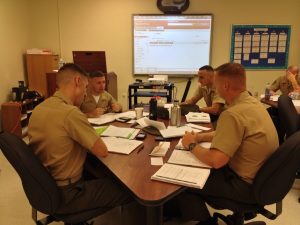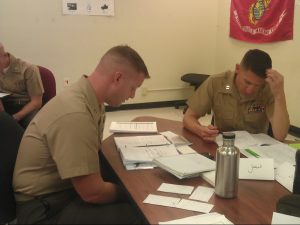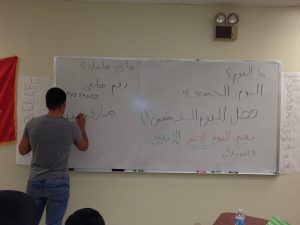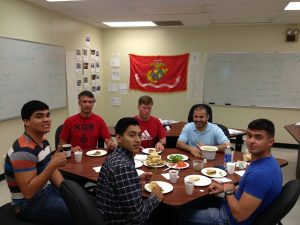Since 2011, SDSU-LARC has received funding from the Defense Language National Security Education Office (DLNSEO) to respond directly to active duty and reservist personnel’s defense language training needs through intensive enhancement and sustainment training for professional military linguists, just-in-time, mission critical, and individually tailored pre-deployment language training for non-linguist personnel, and CONUS iso-immersion courses in Arabic (Iraqi and Levantine), Chinese, Pashto, Persian, and Russian. LARC covers all costs associated with instruction, i.e. the instructor, materials, and room. The sending partner covers all other student costs, such as airfare, ground transportation, billeting, and meals.
Courses listed below are ones that have been requested of SDSU-LARC’s Language Training Center (LTC) program for delivery in the current program year. Click the “Nomination Form” here or link below in order to (self) nominate into one or more of the courses listed by training type. If you have trouble accessing the Nomination Form due to on-base firewalls, please use your mobile device or a computer off-base.
Individuals wishing to nominate themselves, or a member of their command language program, can also email chris.brown@sdsu.edu AND erubin@sdsu.edu with their full first and last name, service and unit affiliation, most recent DLPT score with date, and civilian email address. Please also plan to complete a post-training DLPT within no more than 1-2 weeks after the end of the course or your participation in it. These data are a necessary condition of participation in the courses listed here, as they are funded by a federal grant from the Department of Defense.
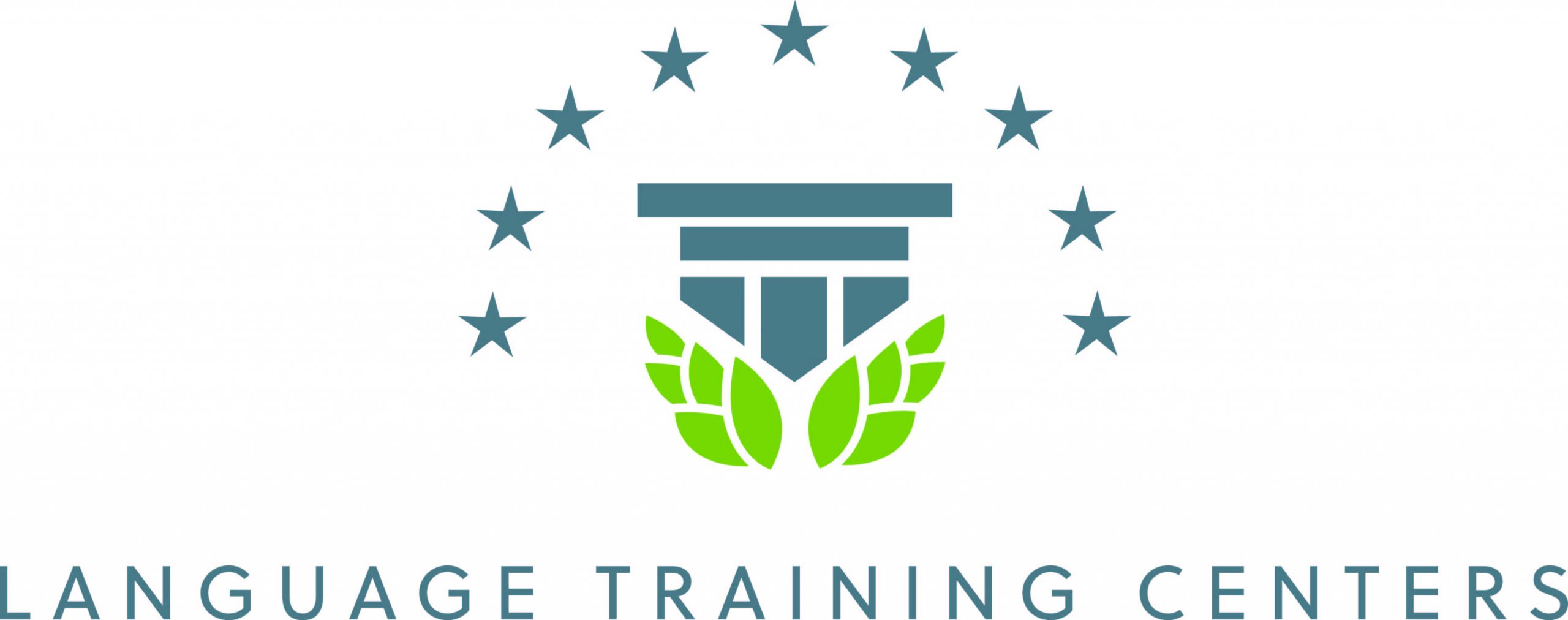
The Language Training Centers Program is an initiative sponsored by the Defense Language and National Security Education Office and administered by the Institute of International Education.
SDSU-LARC LTC Professional Courses with seats available
Seats may be requested even if only able to participate in part of the indicated training period.
The “course level” indicates the ILR skill level at which the majority of course listening and reading materials, as well as class activities, are pitched. If your incoming reading or listening score is below this range, be advised that, although instructors will make every effort to accomodate and differentiate for your level, the course will likely represent a significant challenge for you. If your incoming reading or listening score is more than one full ILR level below this range, the course is not likely to be a good fit for you, though you are still welcome to inquire.
Students who do not complete their incoming tests (whether OPI, or LPT/RPT) within 48 hours of joining the course will not be allowed to continue in the course.
| Language / Dialect | Dates | Training hours | Course Type (details below) | Course level | Location | Open Seats |
|---|---|---|---|---|---|---|
| Russian | 1 May - 2 June, 2025 | 160 hours | Professional-Sustainment | 2+/3 | Online (In-Person Study Space Available) | 1 |
Course Descriptions
Courses listed as "professional" and "professional-conversion" are designed to serve as annual sustainment/enhancement training events for cryptologic language analysts (CLAs) from 1st Radio Battalion at Camp Pendleton. Seats are available for additional military language learners to participate in these courses, provided they have the requisite incoming proficiency level, as measured by a DLPT completed within the twelve month period prior to the first day of the course. As the listing below indicates, all courses take place online (Zoom) or on the SDSU campus, unless otherwise indicated. A typical class day runs from 8:00 am to 2:30 pm Pacific Time, with one hour for lunch, and with an additional 1-2 hours of structured self-study time each day. For more information about the pedagogical approach, as well as a sample daily schedule, click on the training type hyperlinks below.
This intensive, introductory course covers the fundamentals of the target language, i.e. conversational skills, everyday vocabulary, linguistic structures and essential grammatical forms, as well as culture. Students will be able to use the language for rapport building and obtaining basic information.
Course objectives:- Communicate and exchange information about familiar topics using phrases and simple sentences;
- Handle short social interactions in everyday situations by asking and answering simple questions;
- Read and write basic phrases and short sentences.
Target Goal: ILR 0+ or above (recommended course length of four to eight weeks)
Tactical (Novice) Sample SyllabusThis intensive, introductory course covers the basics of the target language. Students have no prior knowledge of the language. They will use it for professional purposes. Students will use acquired language skills to build capacity for interpersonal communication beyond simple rapport building and routine survival tasks, such as verifying information on increasingly complex descriptions and narrations of people, places, objects, and events.
Course objectives:- Satisfy minimum courtesy requirements and maintain very simple face-to-face conversations on familiar topics;
- Handle short social interactions in everyday situations by asking and answering simple questions;
- Read very simple, connected, written material in a form equivalent to usual printing or typescript, as well as known language elements that have been recombined in new ways to achieve different meanings at a similar level of simplicity;
- Write basic phrases, short sentences, and questions on very familiar topics, as well as simple phone messages, excuses, and notes to service people.
This intensive, advanced course develops students’ professional skills in the target language. Students use the language as a part of their profession, e.g. cryptologic language analysts (CLAs), and take the course to sustain and improve. The general aim of this course is to enhance students’ linguistic and cultural competences through a variety of relevant tasks, and to broaden their understanding of some of the current social, political and economic issues in the country or region where the language is spoken.
Course objectives:
- Describe and narrate events from print/multimedia sources;
- Comprehend and contextualize a structured argument that explains and defends an opinion within extended discourse;
- Discuss topics concretely and abstractly;
- Deal with a linguistically unfamiliar content;
- Recognize and attempt to replicate a high degree of linguistic/lexical accuracy;
- Demonstrate a thorough understanding of the target language’s culture and apply that knowledge to the context;
- Read with almost complete comprehension a variety of authentic prose material on unfamiliar subjects;
- Interpret material correctly, relate ideas and "read between the lines”;
- Follow accurately the essentials of conversations between educated native speakers, reasonably clear telephone calls, radio broadcasts, news stories similar to wire service reports, oral reports, etc.
This advanced immersive course at the ILR level 3 (reading and listening), and levels 2 to 2+ (speaking), exposes students to the target language and culture. The program is designed to help learners gain practice and confidence in using the target language at professional levels of proficiency in listening and reading, and in communicating orally in formal and informal environments. This includes interactions with guest speakers and conversation partners, and, when the course takes place at SDSU-LARC facilities, excursions to communities and businesses where the target language is used.
Course Objectives:- Handle with ease and confidence a large number of communicative tasks.
- Produce speech using paragraph level discourse consistently.
- Engage in conversation on a variety of cultural and social topics formally and informally.
- Deal with a situation with a complication.
- Maintain a good degree of linguistic accuracy.
- Understand standard speech from a variety of countries.
- Follow linguistically complex extended discourse (academic, speeches, professional settings, etc.).
- Command a broad range of vocabulary, including precise, and specialized type of vocabulary embedded in complex grammatical structures.
- Interpret cultural references.
- Understand text from different genres dealing with a wide range of familiar and unfamiliar subjects.
- Understand text featuring argumentation, supported opinion, and hypothesis, and use abstract linguistic formulations.
- Comprehend text through the command of broad, precise, and specialized vocabulary and complex structures.
- Demonstrate a thorough understanding of the target language’s culture and society and apply that knowledge to the context.
This intensive, introductory course is designed for students who have significant knowledge of a related language or dialect, e.g. prior knowledge of MSA and learning the Iraqi dialect. They may or may not be learning the target language for professional purposes. While instruction begins at the introductory level, because of knowledge of the related language, students advance faster than in an introductory course.
Course objectives:- Read material such as announcements of public events, simple prose containing biographical information or narration of events, and straightforward newspaper headlines;
- Follow essential points of written discussion at an elementary level on topics in his/her special professional field;
- Flexibility in understanding a range of circumstances beyond immediate survival needs and basic social demands;
- Able to satisfy minimum courtesy requirements and maintain very simple face-to-face conversations on familiar topics.
Target Goal: 1/1+ or above (dependent on course length; recommended course length of six to eight weeks)
Conversion Sample SyllabusIf you are a US Marine seeking language and culture training, please contact Mr. Kevin Kylis, IMEF PTP Liaison, TECOM Training Support Center, kevin.kylis@usmc.mil, or 951-477-7476, to initiate your request.
To make a general inquiry about language and culture training possibilities for Department of Defense personnel, contact Dr. Chris Brown, chris.brown@sdsu.edu, 619-594-7131, or Dr. Mathias Schulze, mschulze@sdsu.edu, 619-594-0958.
Complete the student nominations form below, click on the nomination form link, or download the PDF nomination form.
Email PDF nomination forms to chris.brown@sdsu.edu and erubin@sdsu.edu
